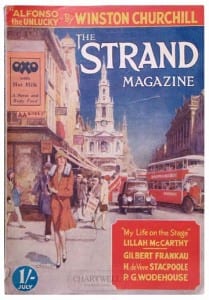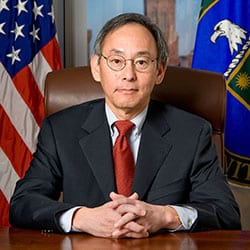Churchill, his physicists and the nuclear bomb
By Oli Usher, on 22 October 2014
Winston Churchill was not the nuclear naif he has sometimes been made out as. Rather, he was a visionary who grasped the impact of nuclear power and nuclear weapons as early as the 1930s and who lost sleep over nuclear proliferation. But his achievements in the field were as a writer in the 1930s and in his largely forgotten second term as PM in the 1950s, not as Britain’s wartime leader.
This is the argument of Graham Farmelo, who spoke on “Churchill, his nuclear physicists and the bomb” in a public lecture at UCL’s Physics department on 8 October. Farmelo, a physicist and popular science writer, is the author of Churchill’s Bomb: A Hidden History of Science, War and Politics, published last year.
Churchill’s involvement with nuclear research does not begin in May 1940, when became prime minister. Rather, Farmelo said, we need to look at Churchill in the preceding decade.
By 1930, Churchill’s political career was in the doldrums, he had retreated to the backbenches, and any return to ministerial office seemed unlikely. He occupied himself with what he had always done: writing. Churchill had a lucrative sideline in journalism, including articles in mass-market publications like the News of the World, writing on a broad range of topics, including science.
Even before his political career tanked, Churchill had shown a keen interest in science. Among the books he read while posted to India in the army was Darwin’s On the Origin of Species and a primer on physics. And in 1926, while Chancellor of the Exchequer, he had even taken time out from writing the budget to dictate an essay on particle physics to his secretary.
 Close
Close





